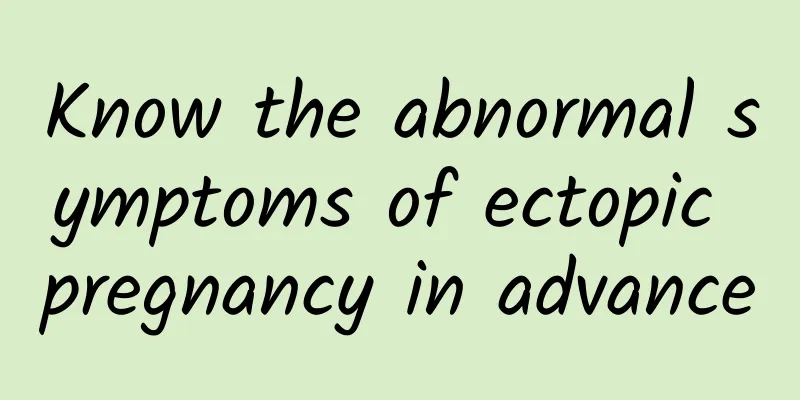How many days after menstruation is the dangerous period? It's just a general rule

|
Generally speaking, the 7 days before and 8 days after the next menstruation are safe, and the rest are dangerous periods. But this is just a general rule, because women's menstrual cycles may change due to changes in life and emotions. During the dangerous period, you should pay attention to contraception, which can be achieved by avoiding the dangerous period, taking oral contraceptives, using birth control rings, etc. The most dangerous period for women is the ovulation period. During this period, if you have sex without taking any measures, the chance of pregnancy will be very high. Therefore, female friends want to have a comprehensive understanding so that they can do a better job of various contraceptive measures. Let's learn in detail how many days after menstruation is the dangerous period? |
<<: Is it easier to get pregnant if your period is irregular?
>>: What to eat during menstruation? Eat foods rich in iron and protein
Recommend
What can you eat to abort a child? What are the dangers of aborting a child for women?
If a female friend wants to abort the child by ea...
Does pelvic inflammatory disease cause dysmenorrhea symptoms in women?
Will female pelvic inflammatory disease cause dys...
So eating like this is bad for your brain? ! Get rid of these 6 bad habits! How many of these brain-damaging eating habits do you have?
So eating like this is bad for your brain? ! Say ...
Several major causes of cervical hypertrophy
Cervical hypertrophy is a gynecological disease t...
How to prevent uterine fibroids?
What are the methods to prevent the onset of uter...
What should I prepare for hospitalization for adenomyoma of the uterus? How many days should I be hospitalized for adenomyoma of the uterus?
Uterine adenomyosis is a common gynecological dis...
Treatment of adenomyosis
Generally speaking, adenomyosis refers to the end...
Daily precautions for patients with ovarian chocolate cysts
Ovarian chocolate cysts are not tumors, but a typ...
Can I eat mangoes after having an abortion? Eat at room temperature
Many people say that women after childbirth shoul...
Does eating spicy food help you lose weight? Eating too much spicy hotpot can cause your blood pressure to get out of control? Doctors reveal: "Eating spicy food" and "eating spicy hot pot" are two different things
This Thursday (7th) is the beginning of winter am...
Drugs cannot completely eradicate uterine fibroids
Although uterine fibroids are a benign tumor, the...
What are the treatments for patients with cervical erosion?
Excessive vaginal cleaning or multiple abortions ...
Are there any sequelae of uterine fibroids? Will they turn into cancer?
Uterine fibroids are generally benign tumors and ...
The most reliable basis for diagnosing endometrial tuberculosis
To diagnose endometrial tuberculosis, some hospit...
What equipment do you need to hunt fat in summer?
Summer is approaching again, and it is also the t...









